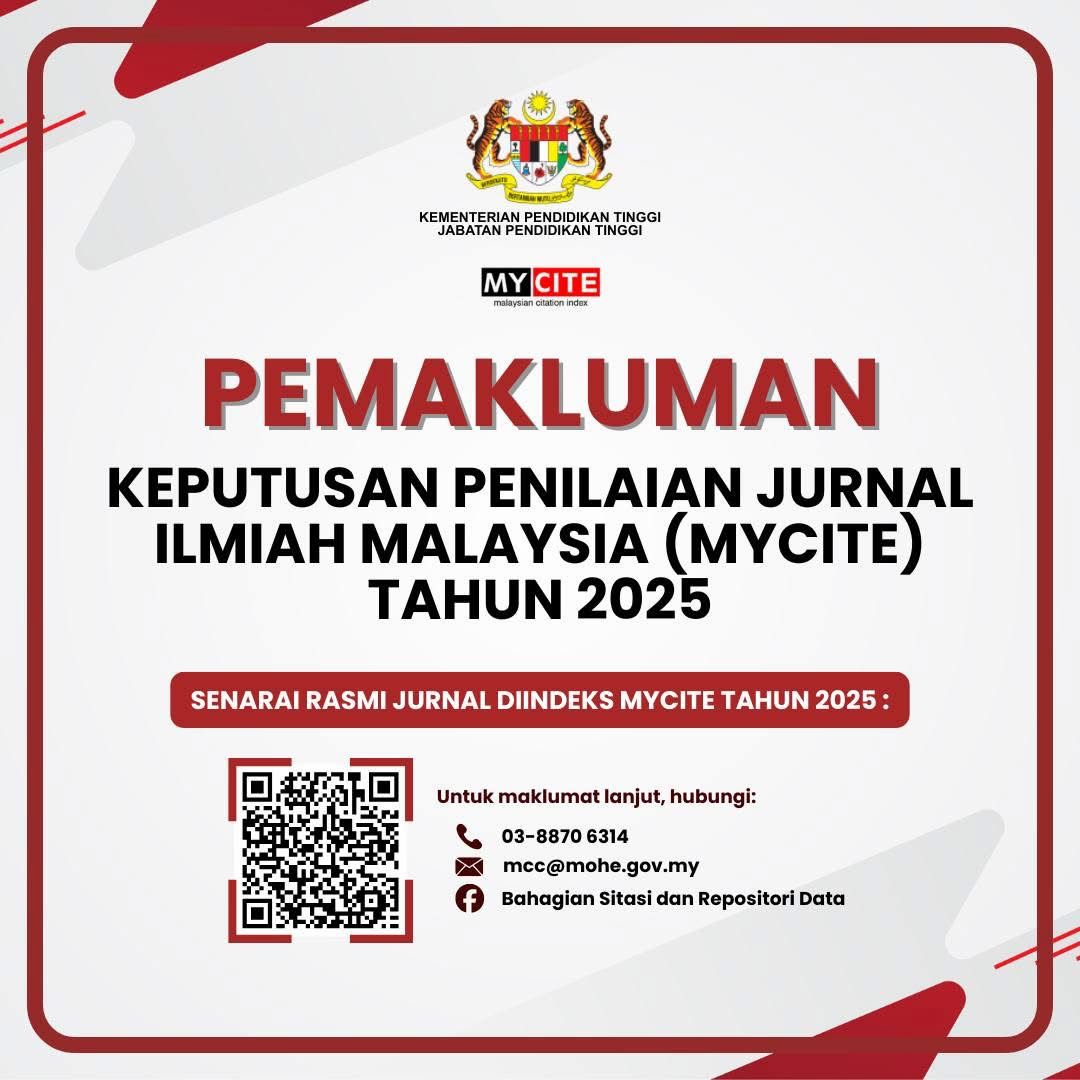The Concept of Joyful Foods According to the Islamic Perspectives
DOI:
https://doi.org/10.24191/idealogy.v8i1.410Keywords:
Food, joyful, Happiness, Mood, IslamAbstract
ABSTRACT
Food not only affects the physical body, but also the brain. Eating can bring about a range of emotions, such as joy and frustration, and can play a role in mental health. Studies have shown that certain foods can increase brain chemicals like dopamine and norepinephrine, which can improve mood, motivation, and concentration. Eating fruits and vegetables can also provide essential nutrients and improve mood by reducing anger and stress. Although the association between food and mood has been proven by several studies, there is limited literature regarding consumption of foods which can bring happiness and joy according to Islamic perspectives. In this research, we analyzed the practical relevance and significance of joyful foods based on Islamic viewpoints, emphasizing on gaining blessings and joy. Theories from prominent Islamic philosophers including Al-Ghazali, An-Nawawi, Al-Farabi, and Ibn Miskawayh were analyzed throughout the study.
Keywords: Food, Joyful, Happiness, Mood, Islam
References
Akhir, M. N. M., Ishii, Y., Paidi, R., Hassan, A., Huda, M. I. M., Kassim, S. R., . . . Akhir, A. M. (2011). Japanese Halal Food Production in Malaysia: Prospective Survey. WILAYAH: The International Journal of East Asian Studies, 1(1), 25-36.
Al-Ghazali, I. (1998). Ihya’ Ulumuddin. Al-Qahirah: Dar al-Hadith.
AlAmmar, W. A., Albeesh, F. H., & Khattab, R. Y. (2020). Food and mood: The corresponsive effect. Current Nutrition Reports, 9, 296-308.
Arab, A., Mehrabani, S., Moradi, S., & Amani, R. (2019). The association between diet and mood: A systematic review of current literature. Psychiatry research, 271, 428-437.
Firth, J., Marx, W., Dash, S., Carney, R., Teasdale, S. B., Solmi, M., . . . Jacka, F. (2019). The effects of dietary improvement on symptoms of depression and anxiety: a meta-analysis of randomized controlled trials. Psychosomatic medicine, 81(3), 265.
Grosso, G. (2021). Nutritional psychiatry: how diet affects brain through gut microbiota. In (Vol. 13, pp. 1282): MDPI.
Hamka. (1940). Falsafah Hidup. Medan: Penerbit Republika.
Imam An-Nawawi. (2017). Terjemahan dan Huraian Riyadus Solihin Edisi Jawi. Malaysia: JAKIM.
Jaapar, N. Z. H., & Azahari, R. (2011). Model keluarga bahagia menurut Islam. Jurnal Fiqh, 8, 25-44.
Khalek, A. A., & Ismail, S. H. S. (2015). Why are we eating halal–using the theory of planned behavior in predicting halal food consumption among generation Y in Malaysia. International journal of social science and humanity, 5(7), 608-612.
Lee, M. F., Angus, D., Walsh, H., & Sargeant, S. (2023). “Maybe it’s Not Just the Food?” A Food and Mood Focus Group Study. International Journal of Environmental Research and Public Health, 20(3), 2011.
Leeds, J., Keith, R., & Woloshynowych, M. (2020). Food and Mood: Exploring the determinants of food choices and the effects of food consumption on mood among women in Inner London. World Nutrition, 11(1), 68-96.
Magesh, P. (2022). Food And Mood-The Interplay Between Nutrition, Mood, Brain, And Behavior. IJO-International Journal of Social Science and Humanities Research (ISSN 2811-2466), 5(12), 01-12.
Mohamad, M. H., & Mansor, F. (2018). Hubungkait Patuh-Syariah dengan Konsep Keberkatan: Tinjauan dalam Konteks Standard Halal Ms 1900: The Relationship between Shariah-Compliance and the Concept of Barakah: An Overview within the Context of MS 1900 Halal Standard. Journal of Fatwa Management and Research, 179-197.
Mohamed, H. A.-B., Hamid, N. S., Baker, R., Ramlee, S. N. S., & Saleh, M. M. (2022). Faktor-Faktor Kebersihan Yang Mempengaruhi Tahap Kesihatan Mahasiswa: Satu Kajian Kes di Sebuah Universiti Awam Malaysia. Paper presented at the Persidangan Antarabangsa Sains Sosial dan Kemanusiaan (PASAK 7), Kolej Universiti Islam Antarabangsa Selangor (KUIS).
Radzi, C. W. J. W. M. (2000). Konsep kesihatan melalui pemakanan: pendekatan Islam dan sains: Utusan.
Raji, M. N. A., Ab Karim, S., Ishak, F. A. C., & Arshad, M. M. (2017). Past and present practices of the Malay food heritage and culture in Malaysia. Journal of Ethnic Foods, 4(4), 221-231.
World Health Organization. (2018). Mental health: strengthening our response. https://www.who.int/news-room/fact-sheets/detail/mental-health-strengthening-our-response
Downloads
Published
Issue
Section
License
UiTM Press (the Publisher) has agreed to publish the undersigned author’s paper in Idealogy Journal. The agreement is contingent upon the fulfilment of a number of requirements listed below.
1. The undersigned author warrants that the paper entitled below is original, that it is not in any way libellous or unlawful in Malaysia, that it does not infringe any copyright or other proprietary right. The undersigned hereby represents and warrants that he/she is the author of the paper, except for material that is clearly identified as to its original source, with permission notices from the copyright owners where required. The undersigned represents that he/she has the power and authority to sign and execute this agreement.
2. The undersigned author warrants that the paper entitled below has not been published elsewhere, and also it will not be submitted anywhere else for publication prior to acceptance/rejection by this Journal.
3. By submitting the paper entitled below, the undersigned author agrees to transfer the rights to publish and distribute the paper in an international e-journal (entitled above) to Publisher.
4. The undersigned author agrees to make a reasonable effort to conform to Publisher's submission guidelines and to liaise with the editor to ensure that the requirements of these guidelines are met to a reasonable degree.
5. The corresponding author signs for and accepts responsibility for releasing this material on behalf of any and all coauthors. This agreement is to be signed by at least one of the authors who has obtained the assent of the co-author(s) where applicable. After submission of this agreement signed by the corresponding author, changes of authorship or in the order of the authors listed will not be accepted.




